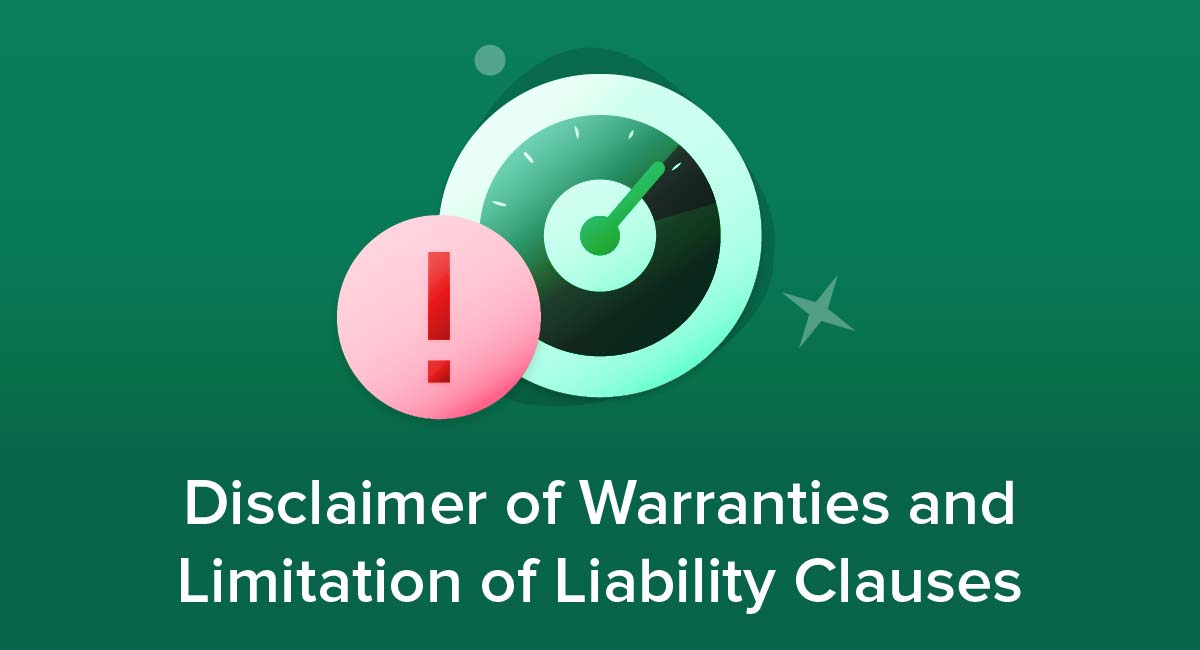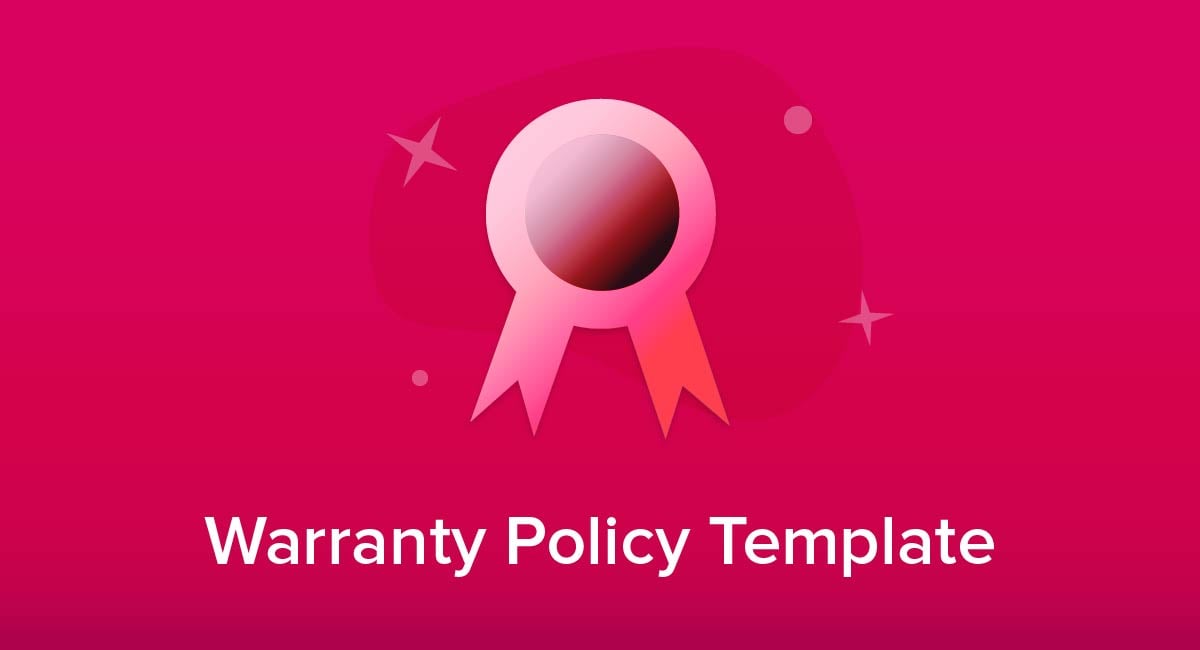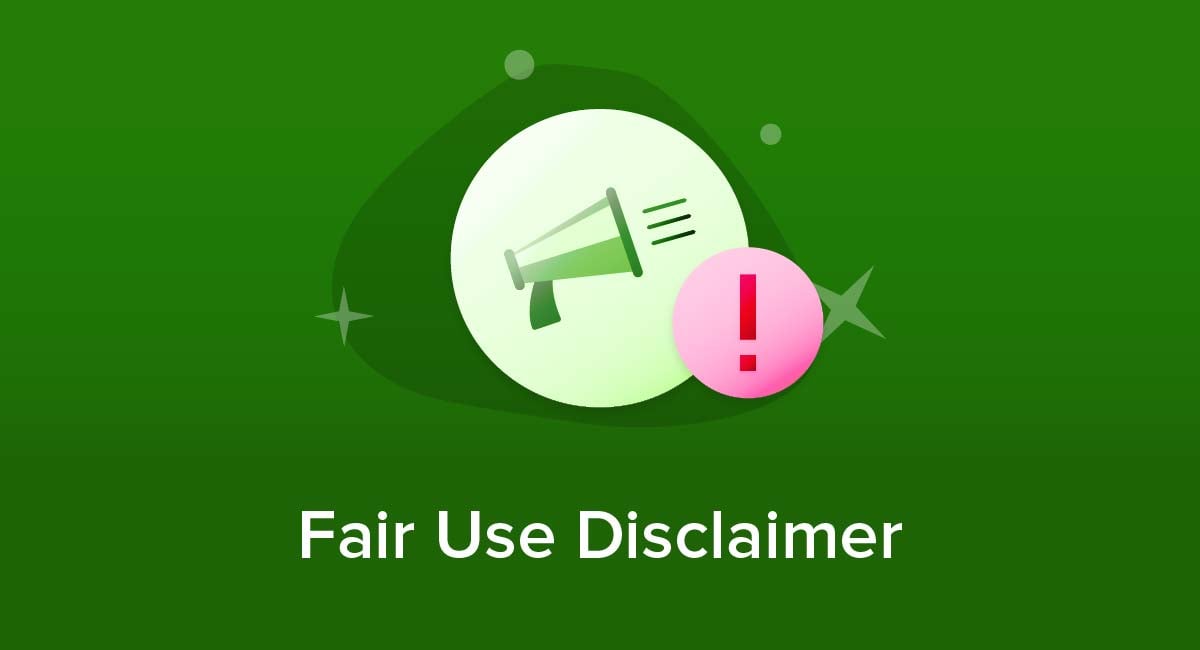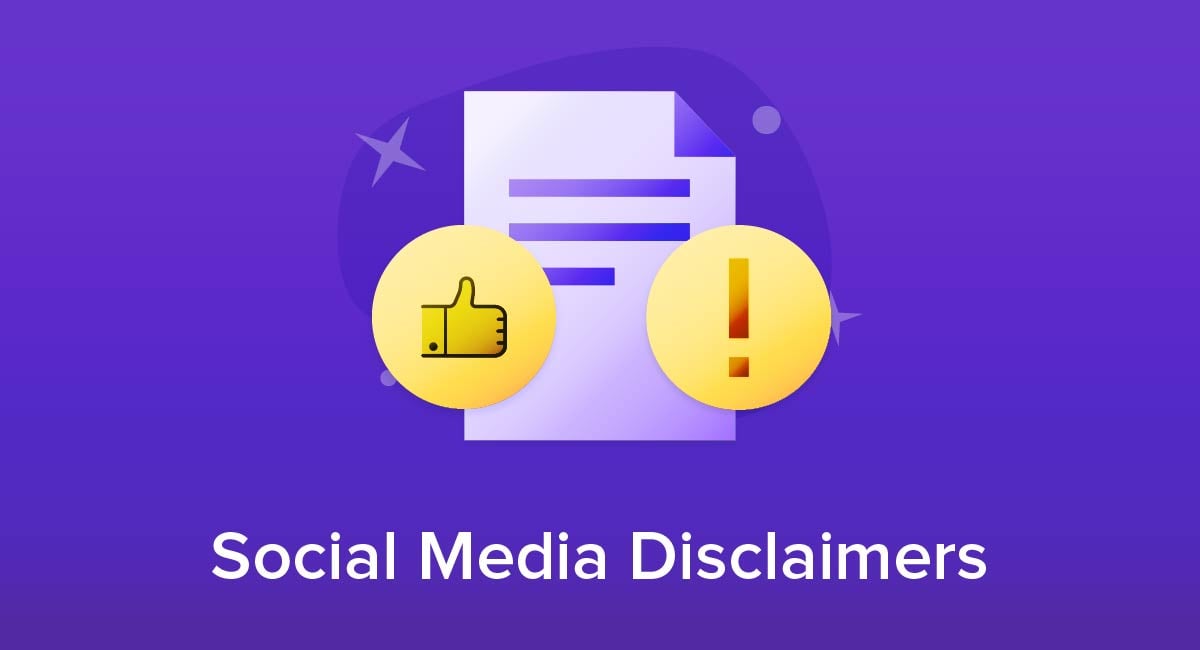
When you post on a social media site in a business context, sometimes your plain words may not be enough. Several legal constraints mean readers have the right to know background facts and context that may affect the way they read, interpret and act upon your posts.
Examples of this include requirements to disclose affiliate relationships and sponsored posts, and restrictions on promotional claims.
Here's what you need to know, and do.
Our Free Disclaimer Generator is designed to help you comply with the requirements of various affiliate programs, such as Amazon Associates. It also includes various disclaimers like medical disclaimer, fitness disclaimer, website disclaimer and so on.
Just follow these few simple steps and generate a Free Disclaimer for your site or your app:
- Start by choosing the "Free Disclaimer Generator" on our site.
-
Then select where your Disclaimer will be used on:
-
Follow with adding your website/app information:
-
Enter the country and click on the "Next Step" button:
-
Continue with building your Disclaimer and answer on questions about your business from our wizard:
-
Now just enter your email address where you'd like your Disclaimer sent and click on the "Generate" button.
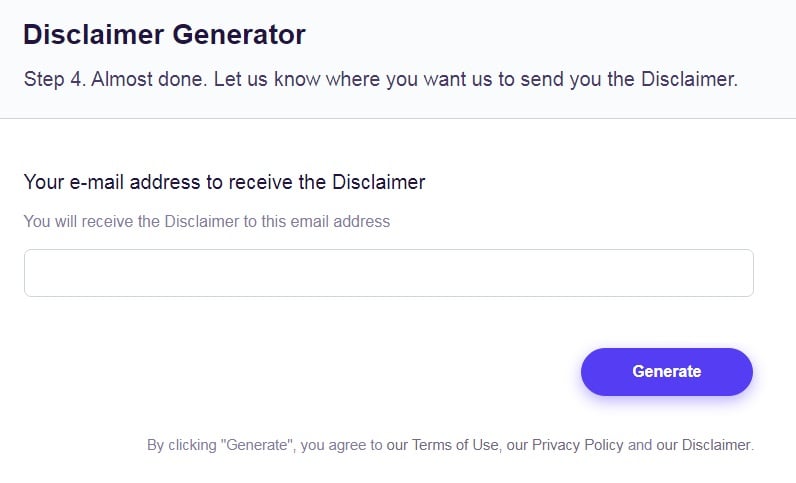
You're done! You can copy and paste your Disclaimer code into your website/app, or link to your hosted Disclaimer page.
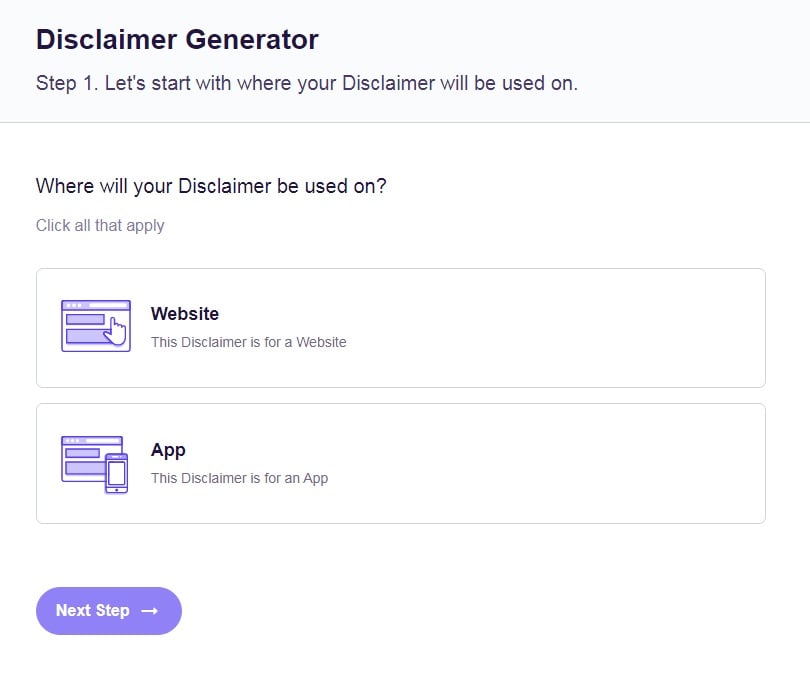
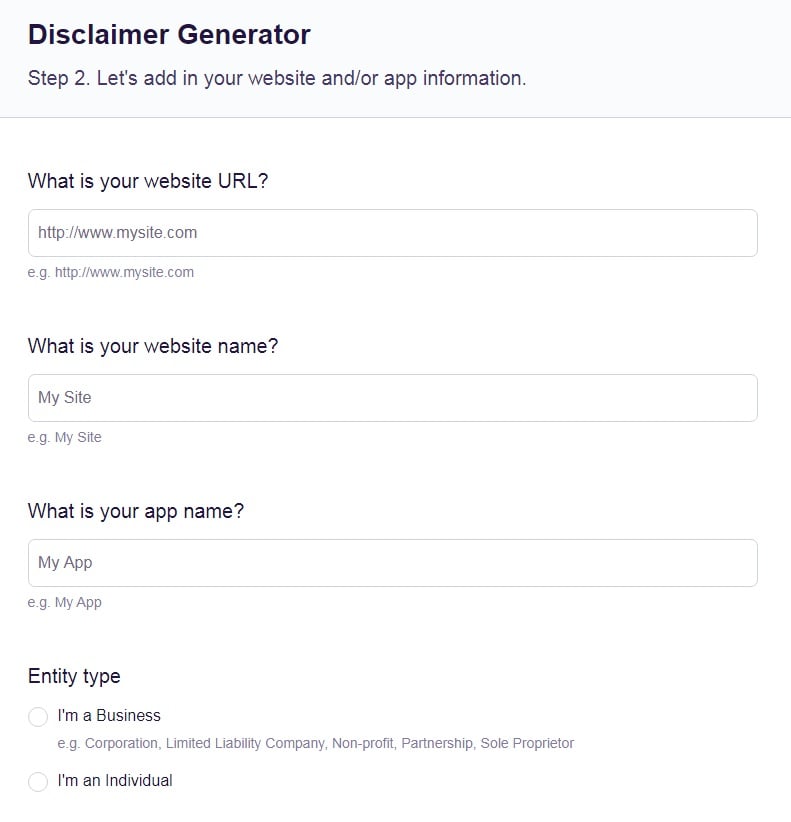
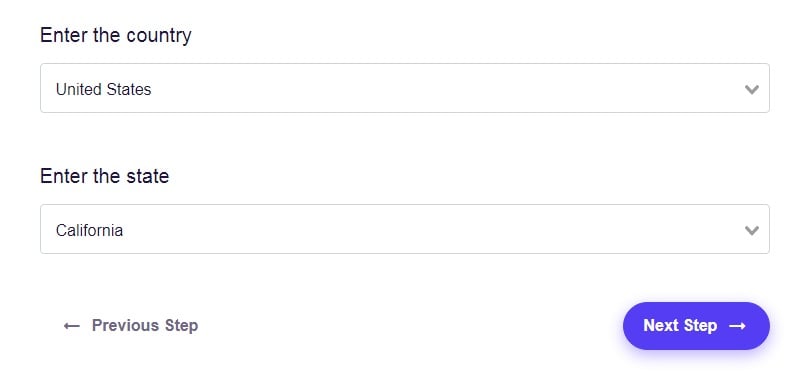
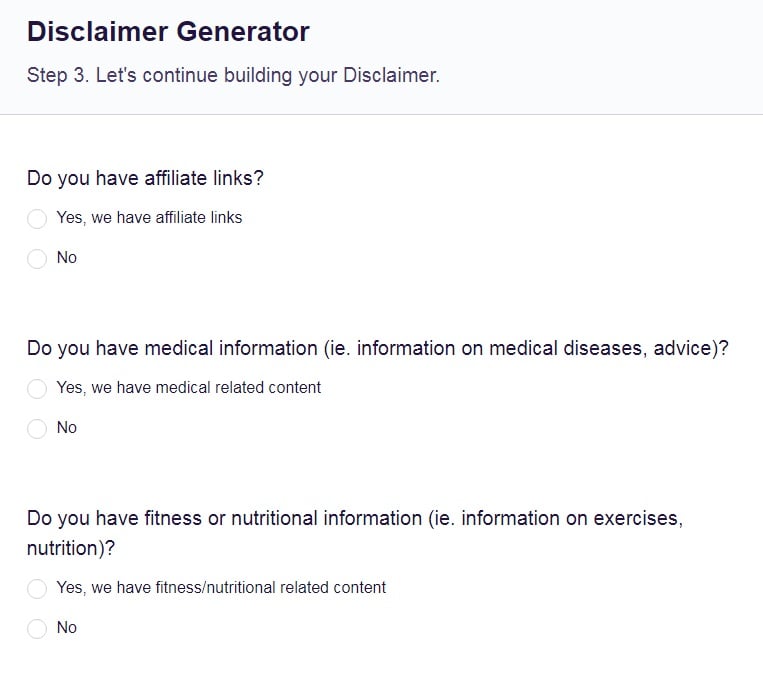
- 1. Federal Trade Commission Rules on Endorsements
- 1.1. Legal Powers and Background
- 1.2. What Counts as a Relationship?
- 1.3. Which Types of Communications are Covered?
- 1.4. What Should the Disclaimer Say?
- 1.5. How and Where Should I Present the Disclaimer?
- 1.6. Can I Write Whatever I Like if I Include the Disclaimer?
- 2. Personal Opinion Disclaimers
- 3. Legal & Financial Advice Disclaimers
- 4. Using Disclaimers on Specific Sites and Services
- 4.1. Amazon Associates
- 4.2. Facebook
- 4.3. YouTube
- 5. Summary
Federal Trade Commission Rules on Endorsements
This is the most important requirement to follow as breaches can not only lead to legal action from the FTC, but may also violate social media platform Terms and Conditions.
The key requirement is that you must disclose any relationship (financial or otherwise) with a product manufacturer or service provider when posting about that product or service.
Legal Powers and Background
The FTC's powers over endorsements and social media posts derive from a core piece of legislation called the FTC Act, and specifically section 5 which prohibits deceptive advertising.
The FTC publishes guides to how it interprets and applies this legislation, including on endorsements.
Acting against the measures set out in the guides is likely to breach the FTC Act. Although such a breach cannot lead to penalty fines or other criminal penalties, you may have to surrender any money you made as a result of the breach and you could be ordered to change your behavior in the future. Breaching this order could lead to further legal action.
Any posts or publication that can be seen by U.S. consumers comes under the Act, even if you or the manufacturer/provider are in another country.
What Counts as a Relationship?

The endorsement disclaimer rules are triggered in two situations:
- You have a relationship with a business, for example a friend or family member has a key position there, or you work for or part-own the business.
- You receive anything in return for the endorsement. This can include receiving a free review copy of a product. It doesn't have to be a direct financial payment. It can even include "potential benefits" such as being entered into a prize draw in return for posting an endorsement.
In some cases it may seem clear that readers or viewers will understand or assume this relationship or payment exists. The FTC's threshold is that a disclaimer is required where there's a risk of at least a "significant minority" of your audience not realising you have the relationship or were paid.
It doesn't matter if you know or believe that the relationship or payment doesn't affect your objectivity. What matters is whether the audience might believe you could be biased if they knew about the relationship or payment.
Which Types of Communications are Covered?
In principle, any form of publishing can come under the rules, including print, broadcast and online content. It doesn't matter if you are a professional journalist or media member or simply a private citizen.
Any post about the product or service comes under the rules. You don't have to be actively or conspicuously positive about the product.
What Should the Disclaimer Say?

There's no specific prescribed wording for the disclaimer. You simply have to say that you have a relationship or received some form of payment.
The FTC guide says you don't necessarily have to give the specific details or amounts of what you received, but instead can give the general outline of the type of relationship or payment.
Examples could include the following:
- I received the product free of charge
- I was paid to write about the product
- I have a family relationship with the manufacturer
- I am a part-owner of the business
The Brin's Book Blog gives a clear and concise explanation of the endorsement relationship:
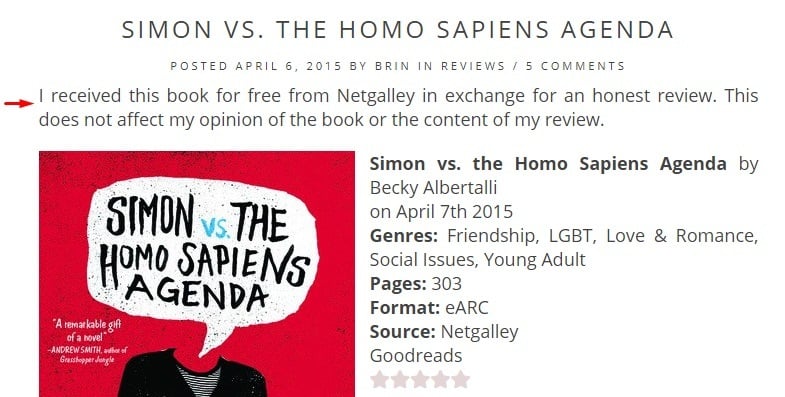
The FTC advises against simply using terms such as "Ambassador" as many consumers may not realise this involves a paid relationship between you and a business.
How and Where Should I Present the Disclaimer?
The general principle is that the disclaimer should be part of the post itself, as close to the endorsement as possible. Some specific advice the FTC gives includes:
- Include any relevant disclaimers in specific posts rather than relying on a single disclaimer on your website or profile page.
- If you make the endorsement in a video (such as on YouTube), include the disclaimer in the video itself. Don't simply put it in the description.
- If the endorsement is in an image (such as on Instagram), put the disclaimer as near to the start of the accompanying caption or description as possible. This makes sure it isn't cut off if the descriptions are truncated in a user's feed.
- In restricted-length formats (such as Twitter), you can use brief hashtags such as #ad, #sponsored or #promotion. Avoid mixing these in with unrelated hashtags.
- If you make the endorsement in a short-form video (such as on Instagram Stories or Snapchat), you can superimpose the disclaimer. Make sure the disclaimer appears in a clearly legible format and for long enough to read.
- Write the disclaimer in the same language as the rest of the post or message that contains the endorsement.
Kendall Jenner's Instagram post highlights a paid endorsement with the hashtag #ad:
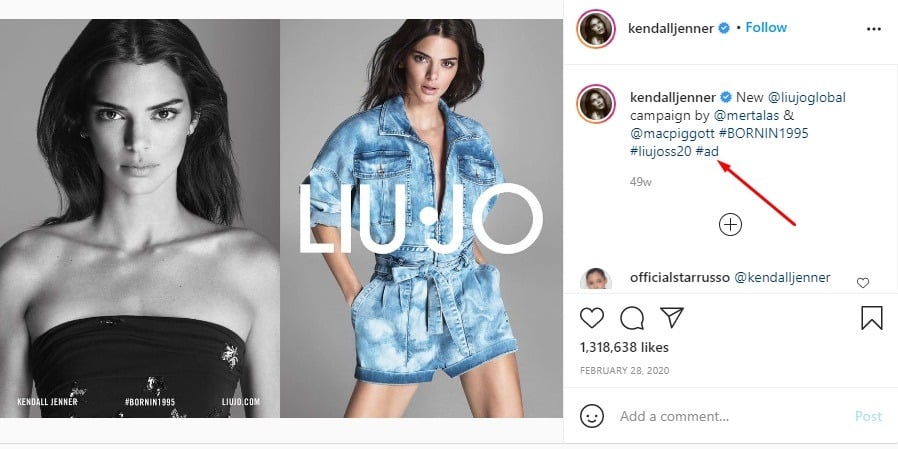
Can I Write Whatever I Like if I Include the Disclaimer?
No, the FTC Act means that if you have any relationship with the manufacturer, seller or service provider, or you receive any payment, you must follow the same rules that apply to other advertising.
Key points include the following.
- You can't make any claims about the product or service without any relevant proof.
- You can't write dishonestly about your experience with the product or service.
- You can't write about your experience with the product or service unless you've actually used it.
Personal Opinion Disclaimers

Sometimes called a "views expressed" disclaimer, this is a way for people to make clear when they are posting in a personal capacity.
These can be useful to make this distinction in two scenarios:
- When somebody publicly associated with a business or organization posts on a professional account but in a personal capacity.
- When somebody publicly associated with a business or organization posts on a personal account.
These disclaimers have limited legal effect. Lawyers could argue that they protect a business or organization from defamation claims but this could be disputed, particularly if the account "belongs" to the organization and it is ultimately responsible for the content.
Instead the disclaimer is more about reducing confusion, giving readers more context and letting them assess how much weight to put on any claims or arguments in a post.
Whether such disclaimers are appropriate, particularly for purely personal accounts, can be arguable. They are more likely to be useful when the individual is closely associated with an organization in the public eye and regularly posts on subjects relevant to that organization.
For example, it should be clear that a postal delivery worker who suggests his favorite team's quarterback should be replaced in the next game is not speaking on behalf of the entire postal service. However, if a local TV weather presenter posted a claim about the causes of climate change, readers might need to know he was not speaking on behalf of the station.
Journalist Kasra Naji makes clear the views in his Twitter posts are personal. This is important as the account (and username) identifies him as a BBC correspondent:
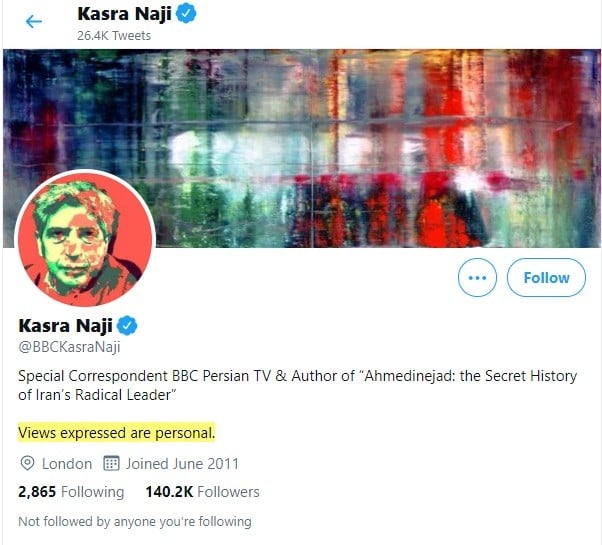
If you have a personal social media account, yet are closely associated with or known to be part of a larger organization or business, this disclaimer should be used on any personal posts you make.
Legal & Financial Advice Disclaimers

If you post on social media about legal or financial topics, it's possible readers may interpret your posts as giving advice. This is a problem if such advice is in a regulated area or if there's a possibility readers might hold you responsible for them acting on the advice. This is particularly likely if you are a professional in the field (for example, a lawyer or financial advisor) or a recognised expert on the subject.
A disclaimer can cover several points, so you'll need to address any that are relevant. These could include the following.
- You aren't giving advice at all
- You aren't giving professional advice
- You aren't establishing a professional or client-advisor relationship with the reader
- Readers are fully responsible for any actions they take after reading the post
- Previous financial performance is not a guarantee of future results
- Information is based on the laws and rules of the specific state or country and may not be correct in other jurisdictions
Accountant Dave Howick makes clear that this post, which includes examples, is not designed as professional advice:
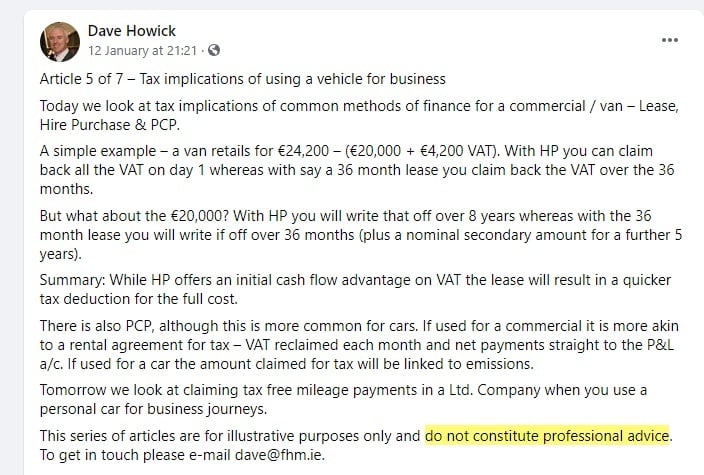
There are other disclaimers that might be relevant for you depending on the nature of your content. For more information on the topic and further assistance creating a disclaimer, check out our Sample Disclaimer Template article.
Using Disclaimers on Specific Sites and Services
As well as complying with the FTC Act, you may need to use disclaimers to comply with the rules of the sites you post on and some associated services.
Amazon Associates
This program lets users post links to Amazon products and receive a commission if readers follow these links and then make purchases. The Amazon Associates Program Operating Agreement says you must follow the FTC rules by clearly and conspicuously posting a disclaimer stating that you receive payment for mentioning a product in the form of (potential) royalties. This must appear by or near each affiliate link.
The Operating Agreement also says you must have a specifically-worded statement either on the website where you post links, or "associated with your account" on social media (for example in your account description, profile or pinned post.) The wording is as follows:
"As an Amazon Associate I earn from qualifying purchases."
The Cakes Step By Step blog uses the required wording, then adds some extra context and reassurance:
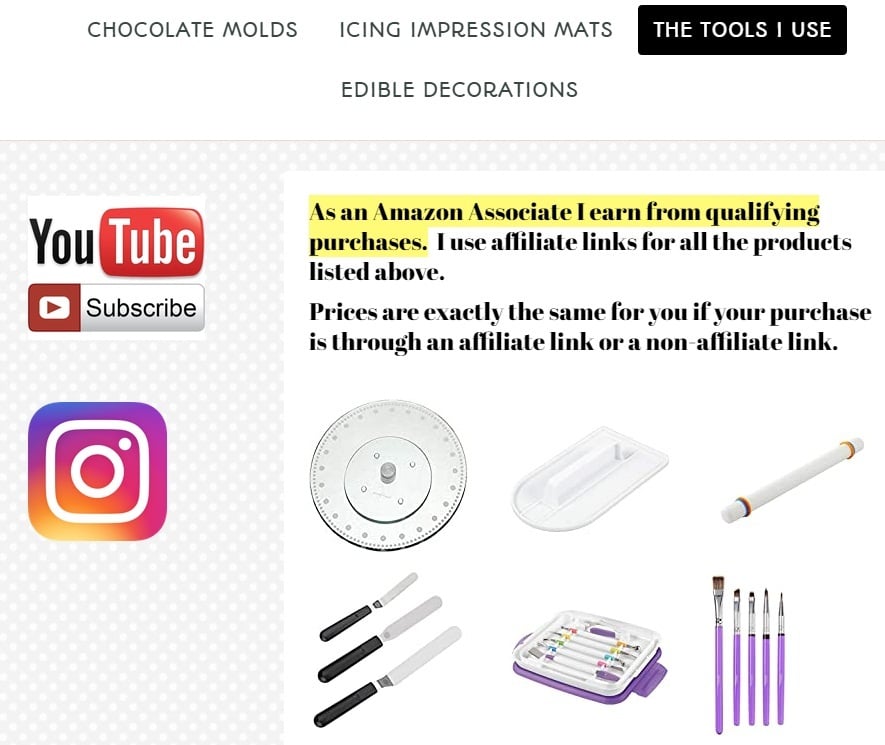
If you don't follow Amazon's rule here, you'll be violating both that rule and the FTC's rules, putting yourself at double the risk of a violation.
Facebook's rules for Pages and advertising not only allow users to make paid endorsements or promotions, but the company encourages it through an automated tool called "Branded Content."
When you use this tool, you must "tag" the business which has paid you to promote the product or service. This tag means the post will appear on your page with a direct mention of the business, for example "Fred's Fast Food Reviews with Olive Oyl's Chicken" and the word "Paid."
The Facebook rules say that you must still follow any appropriate country-specific regulations. Simply using the Branded Content tool isn't enough to be certain of meeting the FTC rules for two reasons:
- The "paid" tag may not be clear and prominent enough to be sure readers will see and understand the relationship.
- Disclaimers need to be clear about what type of payment was involved (for example, money, royalties or a free product).
YouTube
YouTube also has a mandatory automated system for noting sponsored or paid content. When you use this feature, the words "Includes paid promotion" appear overlaid near the bottom of the video for the first few seconds. Using this feature also means YouTube will avoid showing any ads that could conflict with the business that paid you.
YouTube says you are still responsible for following country-specific regulations and that failing to do so could mean your account is suspended. The automated system isn't enough to be certain of meeting the FTC rules because:
- The automated disclaimer isn't prominent enough. In particular, a viewer may skip past the first few seconds of the video and not see it.
- The automated disclaimer doesn't make clear who paid you to endorse or promote a product or service.
The best way to be sure of meeting the FTC rules is to include a clear disclaimer at or near the beginning of the video description.
Summary
Let's recap what you need to know about social media disclaimers.
- The FTC Act bans deceptive advertising. To enforce this ban, the FTC created rules on disclosing endorsements.
- The key principle is that you must disclose any relationship or payment when you endorse a product or service. "Endorse" can cover any mention of the product or service.
- The rule applies to anyone, including private citizens posting on social media.
- You must disclose any form of payment, including receiving products or services without charge.
- The disclaimer doesn't have to detail specific amounts but must list every form of payment you received.
- The disclaimer should be part of the social media post itself and appear close to the endorsement.
- Even with the disclaimer, you can't make a misleading endorsement or make any claims that require proof that you don't have.
- A "views expressed" disclaimer can reduce confusion between an individual's personal opinion and that of their employer or organization. Whether it's necessary depends on the risk of confusion and the potential damage that could cause.
- Legal or financial professionals or experts may need a disclaimer to clarify that their post doesn't constitute professional advice.
- Several sites and services including Amazon, Facebook and YouTube have specific rules about disclosing relationships and payments when making endorsements. Following these rules will not always be sufficient to meet the FTC rules.
